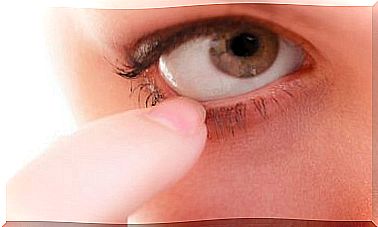Marshmallow Root: Benefits And Side Effects
Marshmallow root (Althaea officinalis) is a fibrous, brown-colored husk that comes from the marshmallow, a perennial native to Europe, Western Asia, and North Africa. Its extracts are used to make cough syrups and skin products.
But, beyond this, it seems to have other medicinal uses due to its particular properties. However, for now there is no solid evidence on its effects on health, since the studies that have been done in humans have been small-scale and are not conclusive.
Therefore, although many use it as an herbal supplement, it is not accepted as a first-choice treatment in case of diseases. Also, due to its possible side effects and interactions, it is recommended to consult your doctor before trying it.
Marshmallow root benefits
The medicinal properties attributed to marshmallow root come, to a large extent, from its mucilage content. The latter refer to a gelatinous plant substance, similar to sap, which has been used as a thickener.
In fact, the sweets known as marshmallows received this name, because at the beginning their manufacturers used the mucilage of this root for their elaboration. However, nowadays they do not usually use this herb, but they are made with sugar and gelatin.
Returning to the main topic, the mucilages in marshmallow root have antioxidant activity and, in general, evidence suggests that they help against skin irritation and digestive problems. Do you want to know more about it? Here are its main benefits.
Contributes to the treatment of coughs and colds
Some syrups and cough drops use marshmallow root among their components. The reason? The mucilage it contains can coat the esophagus, reducing the irritation caused by this symptom. In a study published in Complementary Medicine Research it was found that some supplements with extracts of this root helped against dry coughs.
Meanwhile, a small study reported in the Avicenna Journal of Phytomedicine found that children who consumed a mixture of herbs, such as marshmallow, chamomile, and sage, had fewer severe coughs and fewer nighttime awakenings compared to those who received placebo.
Therefore, it is believed that the marshmallow root can be useful against the symptoms of flu and cold. However, more evidence is needed. Still, it can be consumed in the form of tea, lozenges, or syrup.
May soothe irritated skin
Marshmallow root is credited with an anti-inflammatory effect that could be helpful in soothing skin irritation in cases of furunculosis, eczema, or dermatitis. A review published in Advances in Dermatology and Allergology found that an ointment with 20% marshmallow root extract was helpful against irritated skin.
Likewise, it has been suggested that the topical application of products with these extracts helps to mitigate the negative effects of UV rays or sun exposure. Of course, it should not be a substitute for sunscreen, as it does not provide enough protection.
Protection against ulcers
On its own, marshmallow root extract does not have the ability to prevent ulcers from forming. However, in conjunction with healthy habits, it can help reduce risk, as shown in an animal study published in Pharmaceutical and Biosciences Journal .
The researchers suggest that the mucilages and flavonoids of this plant are responsible for this effect. Specifically, they seem to cover and protect the mucous lining of the digestive system, which reduces the formation of ulcers.
Other possible benefits of marshmallow root
- Herbal remedies containing marshmallow root have shown a positive effect against dry mouth.
- The plant and its extracts have also been suggested to help promote wound healing and healing. It is even believed that it reduces the risk of infection.
- It has diuretic properties that can help promote the elimination of retained fluids in the body. However, it should be used with care, especially in case of being under other treatments.

Marshmallow root side effects
In most healthy adults, marshmallow root is well tolerated and does not cause unwanted reactions in moderate doses. However, some people may have an upset stomach and dizziness. Given this, the recommendation is to start with a low dose, until reaching the dose suggested by the doctor or the manufacturer of the supplement.
Now, according to information from the American corporation WebMD , in some people it can cause low blood sugar levels. In addition, due to the lack of evidence on its safety and efficacy, it should be avoided in the following cases:
- Pregnancy and breastfeeding.
- Bleeding disorders.
- Diabetes.
- Before and after surgical procedures.
In general, it can interact with lithium, diabetes medications, and medications taken by mouth. Therefore, before ingesting it, it is best to consult.









